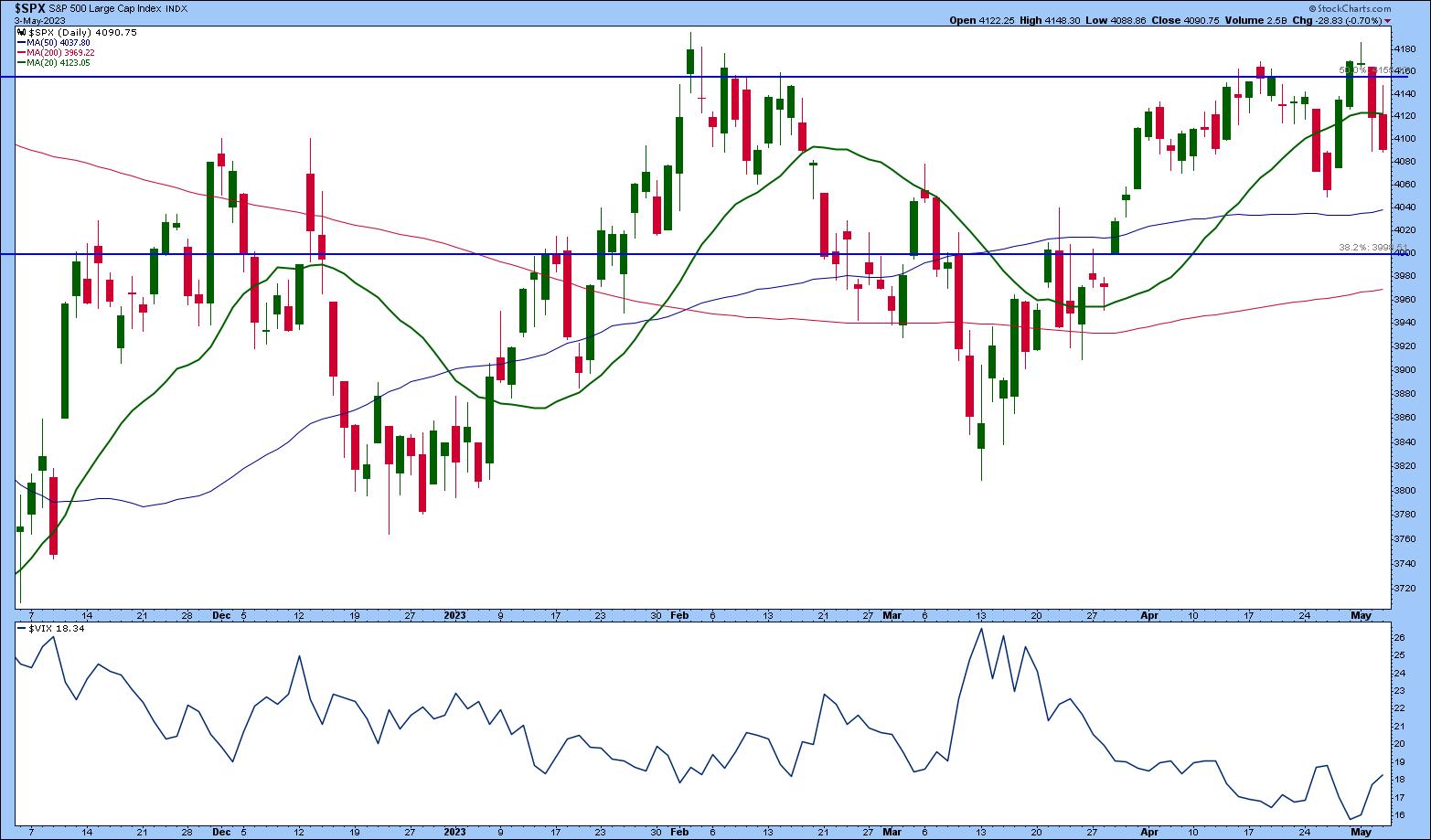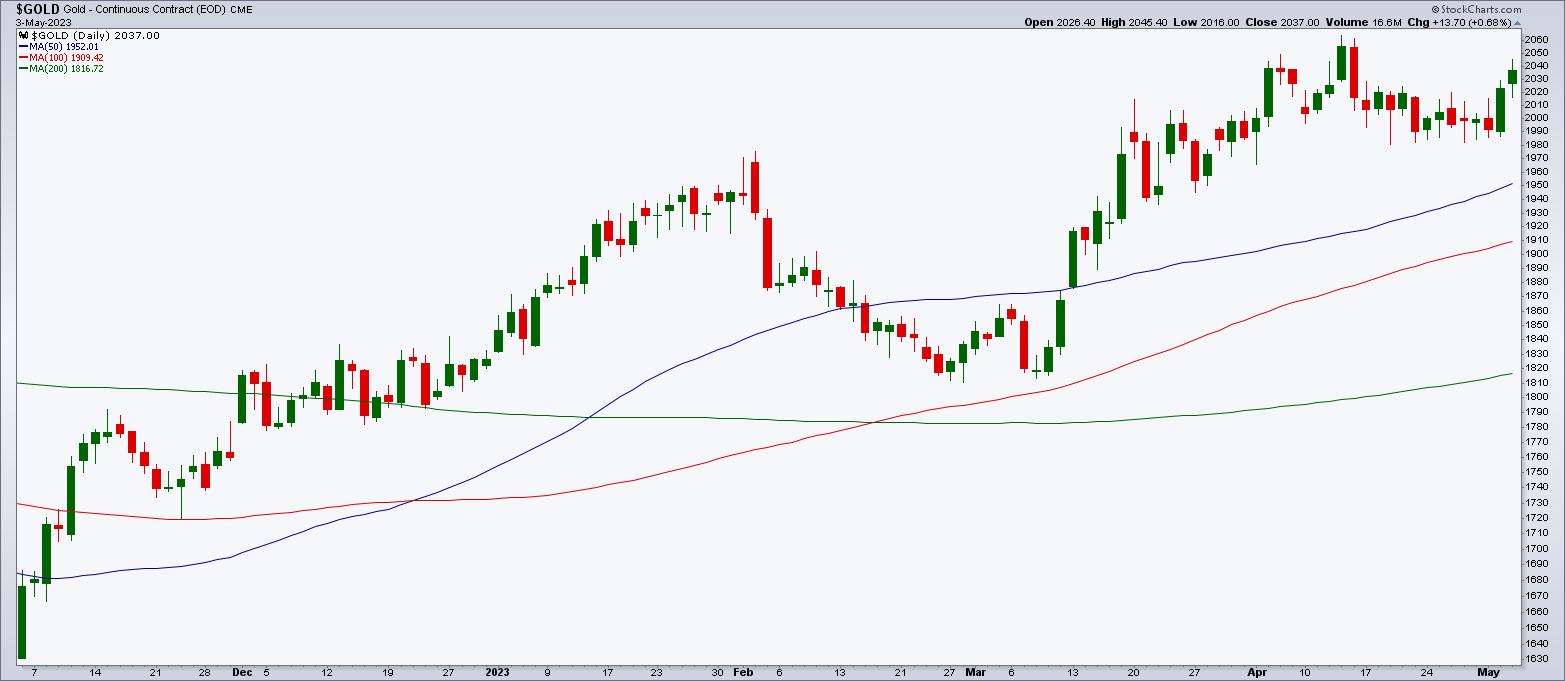No Signs of an Interest Rate Pause: Stocks Down, Gold Up


Today was Fed Decision Day, and investors were disappointed. No definite pause in interest rate hikes, but maybe just a little hint.
As expected, the Fed raised interest rates by 25 basis points. This brings interest rates to the 5.0%-to-5.25% range. The last time rates were this high was in 2007.
A Little Cooling, but Not Enough
It shouldn't come as a surprise that the main reason behind the Fed's decision was that, even though economic expansion in the US has moderated, overall, inflation is still elevated. Plus, job gains are still robust and unemployment is still low.
According to Powell, the pace of economic growth this year continues to be modest, even though consumer spending is strong. There are signs that supply and demand in the labor market are moving towards being more balanced, but there's still a lot of excess demand.
The Fed continues to be committed to bring inflation back to its 2% level. It's important to achieve price stability because, without it, the labor market won't reach a level that will benefit everyone.
A bigger concern among investors is when and if the Fed intends to pause interest rate hikes. While Chairman Powell didn't say that the Fed would pause raising rates, he did remove the language of anticipating rate hikes. This was a change of tone from previous statements but, overall, his comments were noncommittal. The door is left open for further rate hikes if it's warranted. It all depends on incoming data. Powell did say that inflation is likely to come down; if that happens, there's a chance the Fed will pause raising rates.
But the Chairman's comments weren't enough to ignite a bullish reaction from the stock market. Maybe the market was looking for more of a definite statement instead of the "inflation is still above 2%, and we still have a long way to go before we get there." Chairman Powell's comments still had a hawkish tone.
The Market's Reaction
The broader indexes closed lower and all 11 S&P sectors closed in the red. The S&P 500 index ($SPX) fell 0.70% to close at 4090.75. Not exactly the direction investors were hoping for, and it continues its choppy movement.

CHART 1: S&P 500 INDEX FALLS AFTER FED'S PRESSER. The S&P 500 continues its choppy sideways move.Chart source: StockCharts.com. For illustrative purposes only.
But gold prices rose. Gold prices have been rising since November 2022. After reaching a high in April, gold prices pulled back. But the last two days saw gold prices rise. Could this be a sign of flight to safety?
 CHART 2: GOLD PRICES RISE. Is this a sign of flight to safety? It's worth keeping an eye on gold prices.Chart source: StockCharts.com. For illustrative purposes only.
CHART 2: GOLD PRICES RISE. Is this a sign of flight to safety? It's worth keeping an eye on gold prices.Chart source: StockCharts.com. For illustrative purposes only.
A key point is how rate hikes have impacted the regional banks. Even though Chairman Powell commented that the US banking system is sound and resilient, the higher loan rates reduce demand for loans and increase liability costs for the banks. This puts a dent in a bank's profits. Raising interest rates further could make it more difficult for banks, and we could see more troubled banks surface. This could result in a decline in consumer spending and a slowing of economic growth.
And let's not forget the debt ceiling. Although Powell didn't say too much about this, he did say that, if the debt ceiling isn't raised in a timely manner, there could be adverse consequences.
So there are still a lot of uncertainties in the economy which are going to be reflected in the stock market's price action. But the CBOE Volatility Index ($VIX) is still below the 20 level, which indicates that investors are complacent.
The Final Word
Fed Chairman Powell's comments didn't do much to excite the markets. The consolidation continues in the equity markets until the next significant event. What that's going to be is anyone's guess.

Disclaimer: This blog is for educational purposes only and should not be construed as financial advice. The ideas and strategies should never be used without first assessing your own personal and financial situation, or without consulting a financial professional.



